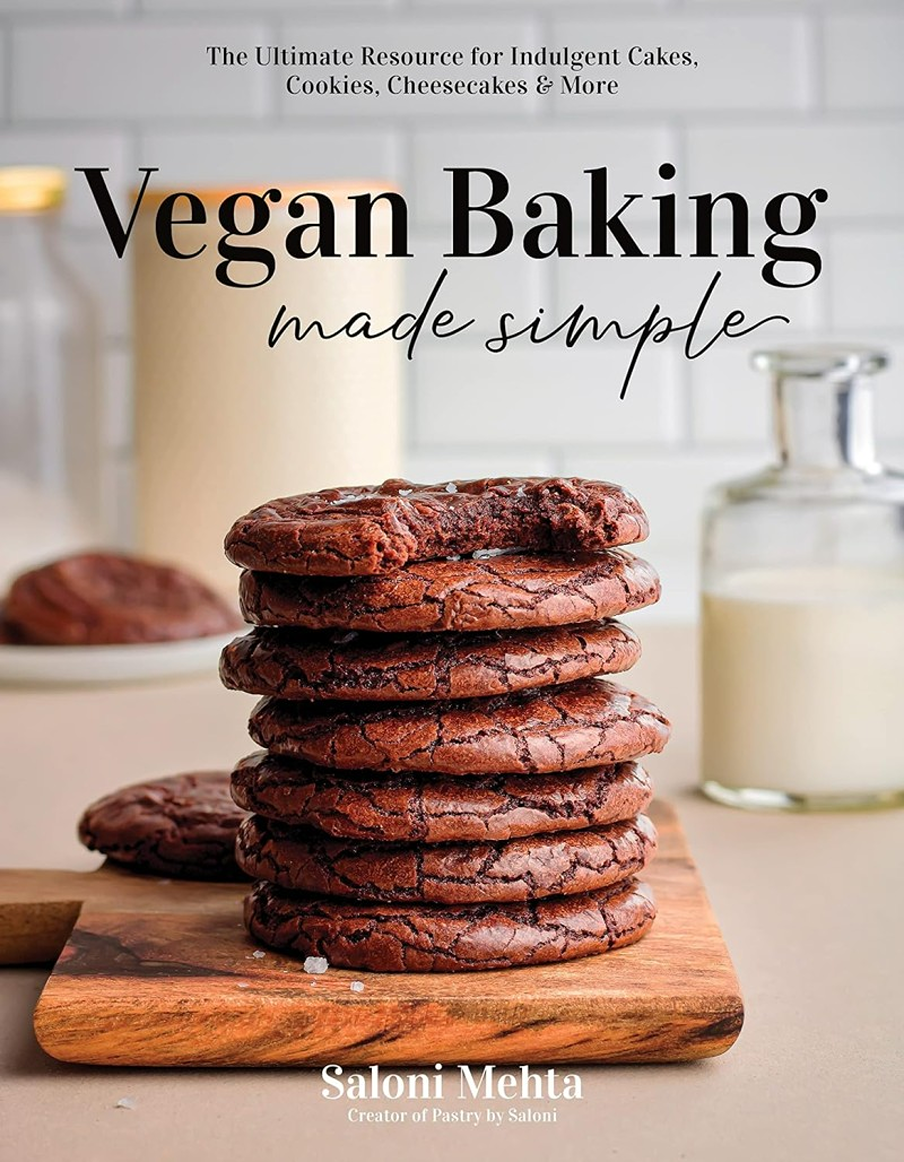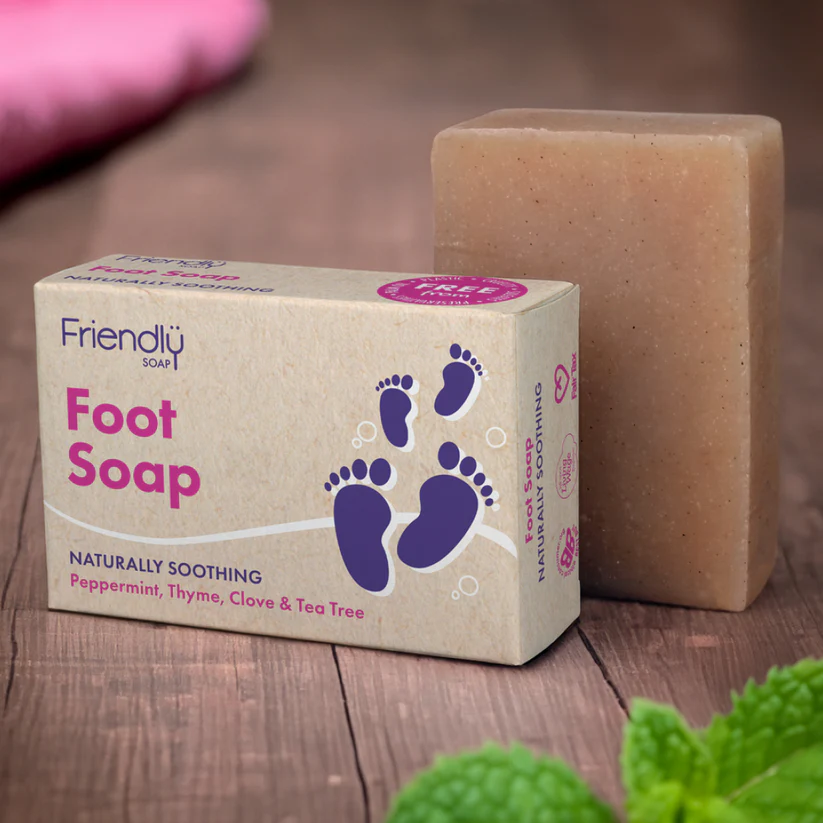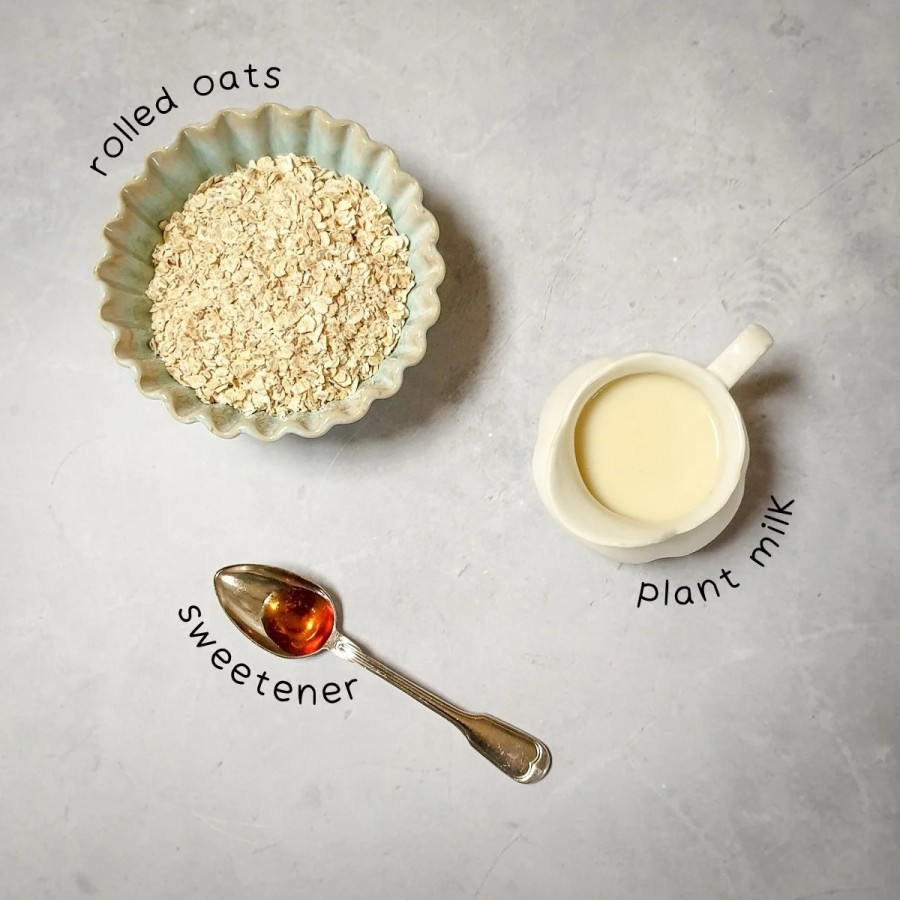Innovative Ideas to Help Homeless People

Homelessnessis a big issue these days, but throwing money is not always the best way to help. Here are some innovative solutions that could make a huge difference, if enacted nationwide, or across the world!
Read our post on helping rough sleepers that live with dogs.
How Do BillyChip Token Work?
Although well-meaning, donating money is not usually recommended by councils and homeless charities (some though not all homeless people spend the money on drink or drugs).
BillyChip solves the issue at source. This chip (founded in honour of a young paramedic killed in a motorcycle accident) pays for the cost of ‘chips’ that are given to local shops and cafes.
If you see a homeless person, you can then ‘buy a chip’ and give it to the person living on the street. He or she can use the chip to buy hot drinks and meals, plus pet food from participating stores.
This idea also helps to keep homeless people and their dogs safe, as they are not being given money, which could cause them to be robbed in some circumstances.
Participating shops and cafes receive window decals to show they’re involved. Which is also a good business idea (people like to support local companies that are doing good).
- Visit the official BillyChip website and request a starter pack. Their team will walk you through the basics, and supply tokens, window stickers for indie shops and promotional materials.
- Approach local café and shop owners. Explain the scheme and how it works. Then ask if they’d be interested in becoming a BillyChip partner (highlighting the benefits of being part of a growing positive movement).
- Talk to local papers and radio about your new BillyChip launch, and organise a community even or drop-in session.
How to Help Homeless People in England
There are presently around 250,000 homeless people in England (this includes rough sleepers, sofa-surfers and people living in temporary bed-and-breakfast accommodation).
Homeless people can claim benefits (usually Universal Credit), giving the address of a family member or friend, or a local hostel or job centre. Having this income helps pay for food (and pet food), interview clothes, and accommodation deposits.
People without a bank account can use the government’s Payment Exception Service to collect benefits from a local post office or PayPoint outlet.
If you see someone sleeping rough, send a report to StreetLink, whose local outreach teams visit rough sleepers at night, to alert them of support to find benefits and accommodation (if the person is under 18, call 999).
Reliance Bank (gifts profits to Salvation Army
Reliance Bank Ltd does something special with its profits. Rather than just growing its own business, it shares those profits directly with The Salvation Army.
Free Showers & Laundries for Homeless People

The city of Miami has installed public toilets for homeless people. Even Pope Francis set up a free laundry for homeless people in Italy. Why are we so behind?
Living on the streets or in insecure housing makes meeting basic needs a daily struggle. Without access to showers, laundry, and toilets, people not only face higher risks of sickness, but also loss of self-respect.
Lack of hygiene can also lead to infections, skin issues and trouble managing ongoing conditions like diabetes. Bad smells or stained clothes can also push people further away from society.
ShowerBox (free showers for London’s homeless people)
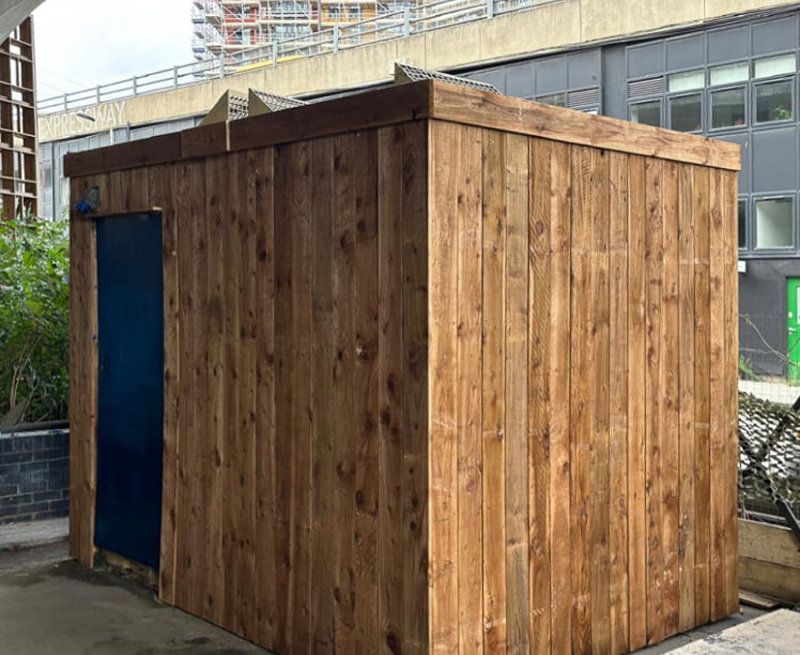
ShowerBox (London and Birmingham) run mobile showers in the two cities that have the highest percentage of homeless people.
The founder (a volunteer for homeless charities) heard that donating clothes to homeless people is virtually useless without showers, as the person needs to be clean, for the clothes to be clean and fresh too, for comfort and interviews etc.
Local people also benefit from hot drinks, free underwear and free use of hair clippers.
With enough support, this could become England’s version to ShowerUp, a US organisation that is sponsored by local businesses and churches, to provide mobile showers throughout several states, combined with volunteers (some also give haircuts).
We are not here to make ‘dirty people’ clean. We are here to give hopeless people HOPE!
One Voice Mobile Showers (Australia)
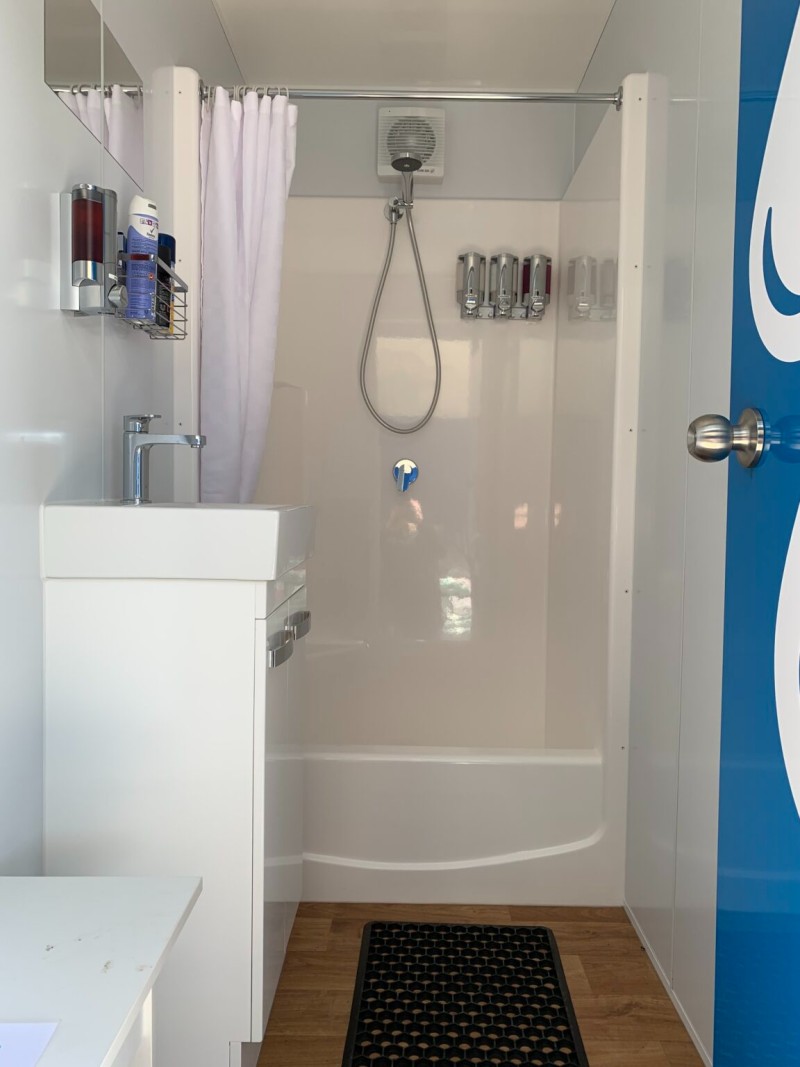
One Voice Mobile Showers began in Melbourne, and now offers mobile showers (along with towels and toiletries), across several Aussie cities. Vans park in busy spots, run by volunteers who greet guests with a smile. Relying on donations and community help, it helps homeless people feel seen and respected.
Orange Sky Australia: Laundry on Wheels
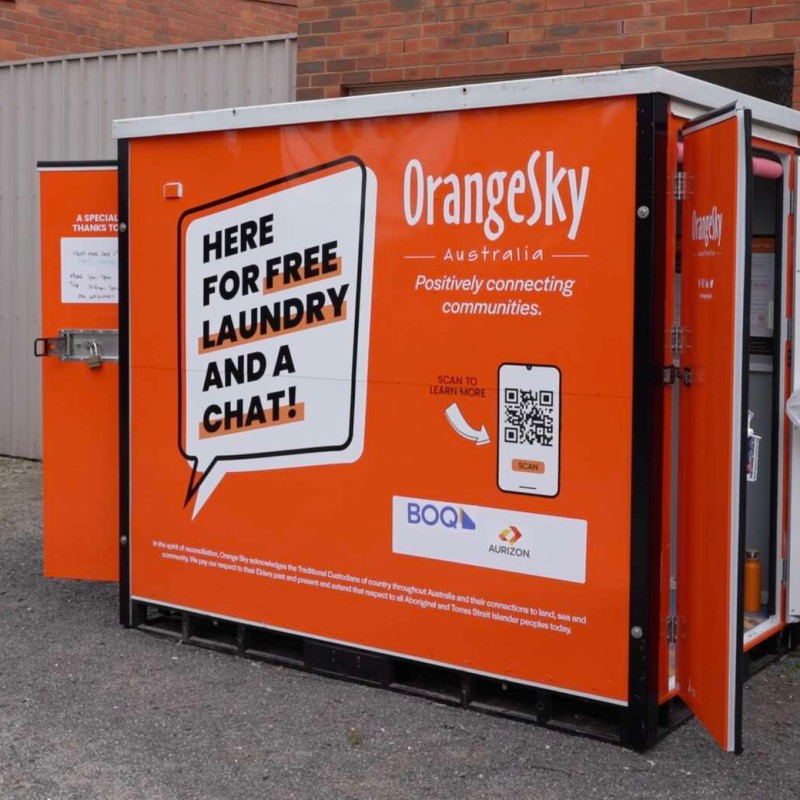
Imagine washing your clothes, while chatting with a friendly volunteer. That’s the core idea behind Orange Sky Australia. With bright orange vans fitted with washers and dryers, they travel across Australia, washing clothes for free and offering hot showers too.
What sets Orange Sky apart is its focus on human connection. Volunteers are trained to listen, share stories, and help guests feel at ease. Those chats often matter just as much as clean clothes.
Pit Stop San Francisco: Clean, Safe Restrooms
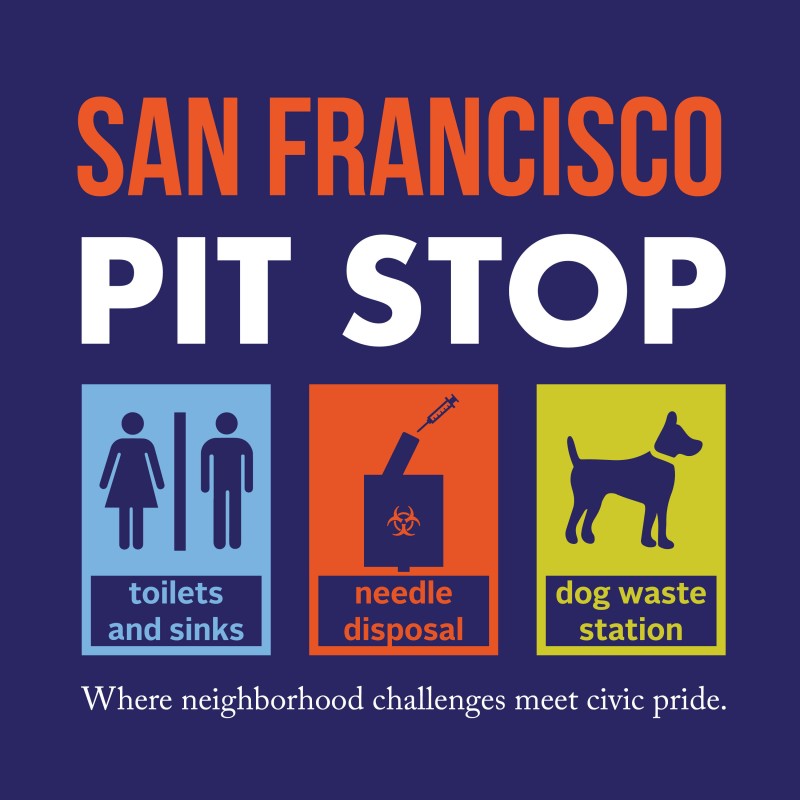
In San Francisco, Pit Stop offers free public bathrooms for homeless people. They have running water, soap and hand towels, plus areas to dispose securely of dog poop (and needles, if they are drug addicts, to avoid leaving them littered in public).
Each site is staffed by paid attendants, which boosts safety and stops vandalism. Pit Stop’s success rests on regular cleaning, friendly staff, and services tailored to the area. The bathrooms are also painted in bright colours, by local artists.
Such schemes become even more important, now that many councils are charging to use public bathrooms, for residents and tourists.
Local people have to then ask: where do homeless people go to the toilet, if there is nowhere for them to go – apart from say in parks or on the streets?
And sometimes urinating or defecating in the street is classed as a public offence (and can even end up with people classed as sex offenders, if say a child walks by at the same time, with charges of indecent exposure a possibility). Councils need to act, to sort this.
Innovative Sleeping Bags for Homeless People

Common risks to homeless people include:
- Exposure and hypothermia: Prolonged cold can drop body temperature dangerously low.
- Trench foot and frostbite: Wet or frozen feet cause pain, infections, and even permanent injury.
- Heatstroke: In summer, concrete gets blisteringly hot, adding sunburn and dehydration to daily threats.
- Chronic illness: Cold nights and wet clothes weaken the immune system, inviting respiratory problems.
A Wind and Waterproof Shelter Suit
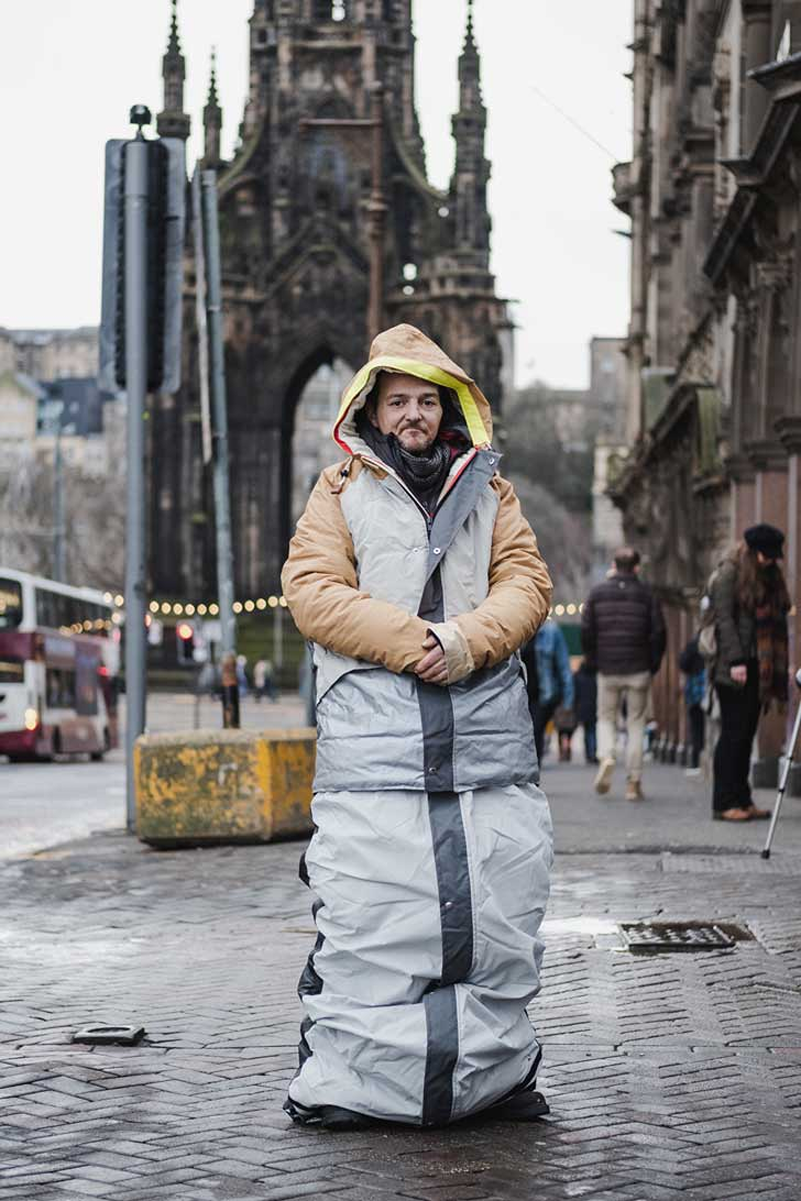
Sheltersuit is a wind-waterproof jacket with a large hood to shield the face from rain and streetlights, with a built-in mattress & pillow.
It was invented in The Netherlands, by the designer who had heard that the (homeless) father of a friend had died of hypothermia. Made from upcycled materials, it’s given out free to homeless people across the world.
A Rain/Wind Resistant ‘Sleeping Tent’
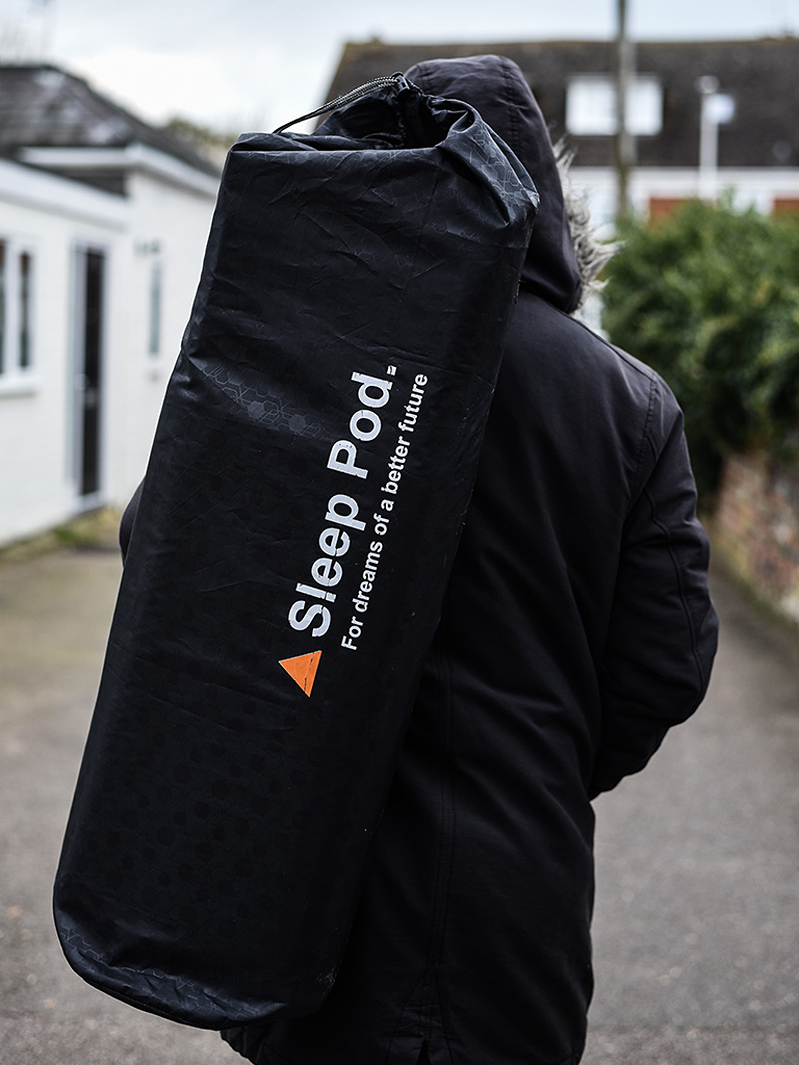
Sleep Pod is a £30 ‘sleeping tent’ that is resistant to rain and wind – it’s also insulated to protect against the elements, but lightweight & easy to carry.
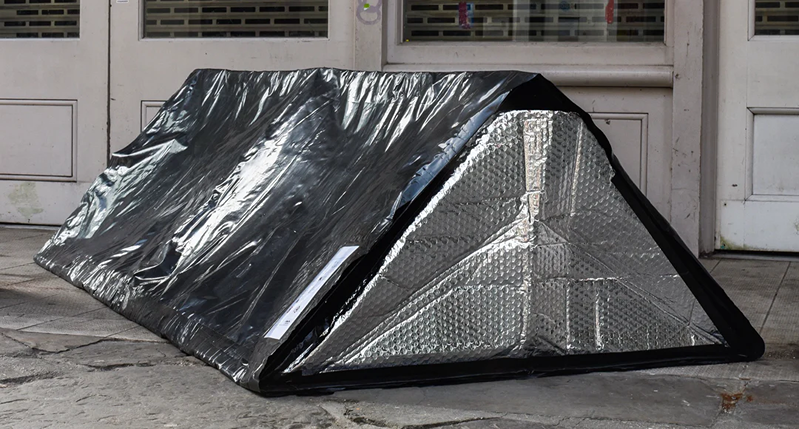
People who use these tents say that they get the best night’s sleep they have had since living on the streets. They are designed especially for severe weather conditions, and far easy to carry around thank blankets, which can get wet and heavy, in poor weather.
Recycled Earrings to Help Homeless People

Pivot is a social enterprise, turning recycled materials into beautiful jewellery while providing real job opportunities for those facing homelessness.
The items are designed to be made in hostels (on a London living wage), to bring part-time and flexible (and meaningful) employment to those who find it difficult to access it. The recycled earrings are presented in a kraft box, and include the name of the person who made them.
Donate broken necklaces or odd earrings to Recycling for Good Causes (list your local animal shelter: they sell the metal and pass on funds).
You can also send unwanted jewellery (and watches) to Animals Asia, where cash raised helps to rescue moon bears.

This brand also recycled acetate (from a spectacle company), to make colourful fun earrings. The money from each sale goes straight back into Pivot’s community programmes.
Wear these earrings to spark chats about recycling and the power of giving people a fair chance.

